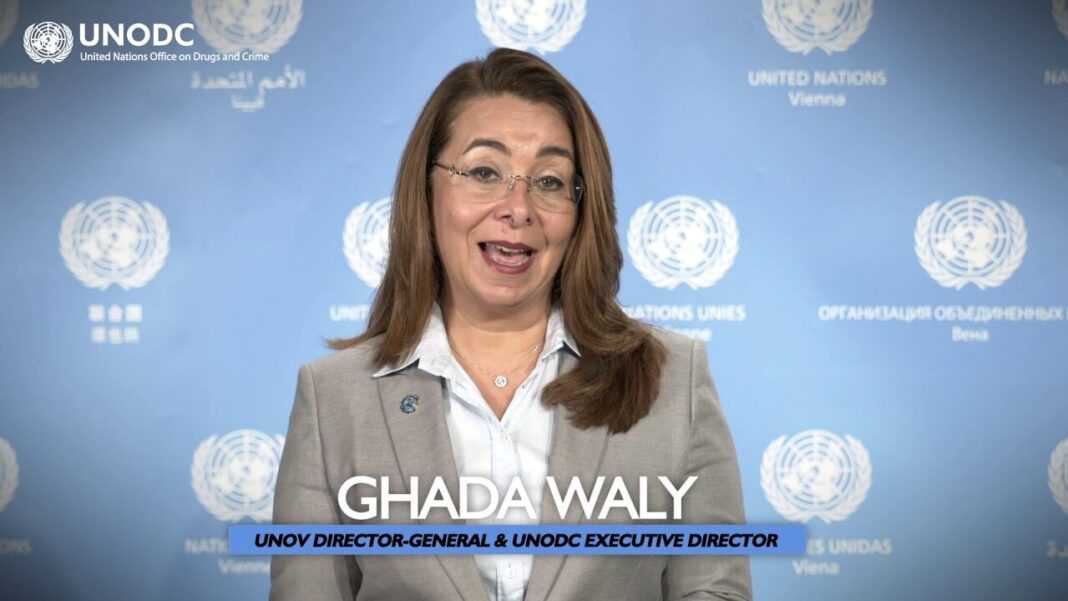Vienna (Austria) 07 February 2022 – The United Nations Office on Drugs and Crime (UNODC) and the International Organization for Migration (IOM) are longstanding allies in the global fight against human trafficking and migrant smuggling.
In a recent event, the two organizations reaffirmed their commitment to the objectives of the Global Compact for Migration (GCM) as members of the United Nations Network on Migration (UNNM), and their shared goal to tackle all forms of organized crime and related abuse and exploitation in the context of migration.
“The UN Network on Migration has been set up to increase the capacity of the UN system to deliver as one on all aspects of migration. It has allowed countries to benefit from each entities’ strengths and areas of expertise,” said Ilias Chatzis, Chief of the UNODC Human Trafficking and Migrant Smuggling Section.
The Multi-Stakeholder Dialogue, which attracted more than 300 participants, offered an opportunity for Member States to join civil society organizations, academia, and other relevant stakeholders to discuss best practices, challenges, and the way forward to meet the objectives of the GCM.
Topics debated included coordinated action on missing migrants, ensuring the right to legal identity for all migrants, promoting alternatives to immigration detention, preventing, and combating trafficking in persons and migrant smuggling, and joining forces for the safe return, readmission, and sustainable reintegration of migrants.
COVID-19 and its impact on migration was also a topic of discussion. UNODC research shows that the pandemic has worsened the precarious situation for migrants in many countries of transit and destination.
According to IOM’s 2022 World Migration Report, the number of international migrants increased across the globe during 2020 and is estimated to be around 281 million people. At the same time, accessing regular migration has been increasingly challenging since the outset of the pandemic.
The Head of IOM’s Immigration and Border Management Division, Damien Thuriaux, said: “The lack of viable migration options increases the space for irregular alternatives, whereby migrants can become highly vulnerable to violence, exploitation and abuse.”
In this context, the pandemic has provided the criminals who smuggle migrants for profit with new opportunities. “As borders are closed and there are less pathways for regular migration, smugglers use more remote and riskier routes in harsher conditions to avoid surveillance at entry points and border crossings,” said Ilias Chatzis.
The Dialogue was part of a series of preliminary discussions in preparation for the first global review of the GCM. This process, known as the International Migration Review Forum (IMRF), will take place every four years starting from May 2022.
Looking ahead to the IMRF, Damien Thuriaux also stressed IOM’s objective to “work with partners towards achieving the ambitions and visions set out by the GCM, supporting practical milestones for countries to embrace the opportunities brought by migration”.
The IMRF is the primary intergovernmental global platform to share progress on the implementation of all aspects of the GCM, including how it relates to the 2030 Agenda for Sustainable Development.
It will result in a Progress Declaration that will shape international policy around migration for the following four years.









